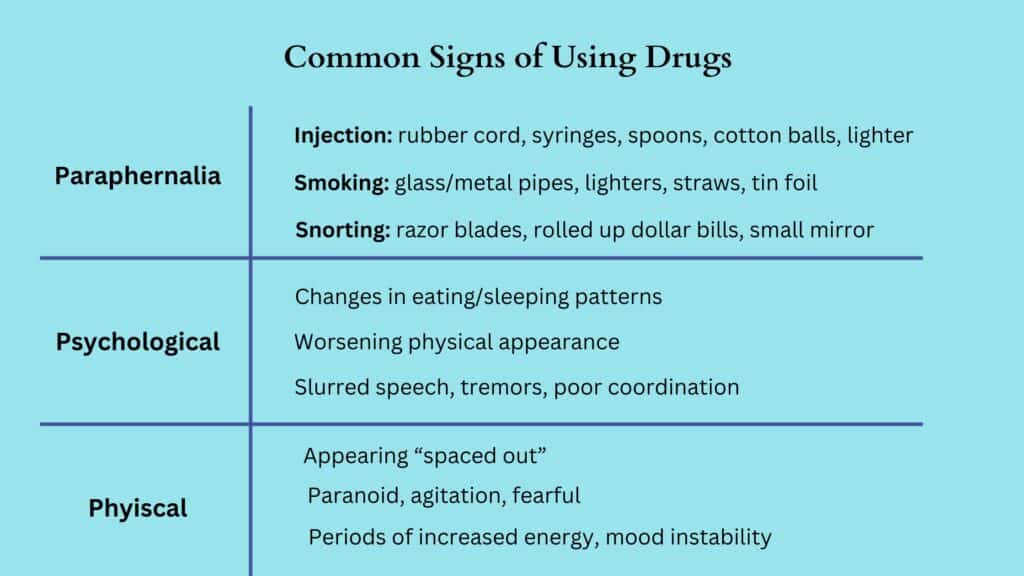Drug abuse is a serious problem in the United States. It affects people of all ages, races, and socioeconomic backgrounds. Many people who struggle with drug addiction don’t realize they have a problem. They often try to hide their drug problem from friends and family members.
If you are worried that someone you know is abusing drugs, there are some signs that you can look for.
Relevance is a drug addiction and mental health treatment center in New Jersey. Keep reading to discuss frequently seen signs someone is abusing drugs and addiction treatment options in New Jersey!
Drug Addiction in 2021 Statistics
According to addiction statistics, about 20.6 million people aged 12 or older in the United States had a substance use disorder in 2019. Of that number, 15.8 million had an alcohol use disorder, and 8.9 million had an illicit drug use disorder.
In addition, NIDA estimates that 10.9 million people misused prescription drugs in 2019.
What Are Common Risk Factors for Someone to Abuse Drugs?
There are many reasons why someone may start using drugs. These include:
- Stress: People may use drugs to cope with stress, anxiety, or depression.
- Peer Pressure: Drugs can be seen as a way to fit in with social circles and impress peers.
- Curiosity: Experimenting with drugs can be an exciting way to explore one’s own limits.
- Escape: People may use drugs as a way to escape from their reality.
What Are the Common Signs and Symptoms of Using Drugs?
If you have suspicions that someone is misusing drugs, there are a few tell-tale drug use symptoms to be aware of:

Physical Symptoms of Drug Abuse
One of the first signs someone is abusing drugs is changes in their physical health.
People abusing drugs may lose or gain weight rapidly, have unkempt appearances, and look significantly different than before.
They may also develop pale complexions, rapid eye movements, and increased body temperature.
Behavioral Signs of Drug Abuse
In addition to physical changes in appearance, people who are abusing drugs may also display specific behavioral changes.
These include:
- Regularly skipping work or school
- Having a sudden lack of interest in activities that were previously enjoyed
- Frequent mood swings
- A rapid change in friendships
- Being uncharacteristically secretive
Financial Signs of Drug Abuse
Drug abuse is an expensive habit to maintain. People struggling with addiction may start asking friends or family members for money or take on second jobs to fund their habit.
They may also make frequent trips to the pharmacy and accumulate a large supply of medications they don’t need.
If you have noticed any drug signs, it is essential to remember that drug abuse is a serious problem and should not be taken lightly. Talking about the addiction and finding an appropriate treatment plan can help them to get the help they need.
If you or someone you know is struggling with drug abuse, please contact a healthcare professional to discuss treatment options. Remember, no one has to face addiction alone. There is hope, and there are resources available for people who are struggling with substance use disorders.
How to Get Someone into Rehab?
When you notice signs a person is using drugs, your first thought may be how to get them into rehab. If you are trying to get someone into a drug rehab program, there are a few steps that you can take to ensure their successful entry.
First, contact the facility where they will be receiving treatment and inquire about the admissions process.
Many centers have an intake process that involves a medical evaluation and financial assessment. It is also essential to research and understands different types of treatment programs, such as inpatient, outpatient, and day programs.
Second, it is crucial to be supportive throughout the entire process. At times an intervention may be necessary.
Addiction can be a challenging experience, and your loved one may need someone to lean on during this process. Offer emotional support and help them make lifestyle changes that will promote their recovery.
Additionally, be sure to educate yourself on the signs and symptoms of addiction so that you can offer your support accordingly.
Finally, it is essential to remember that recovery isn’t easy and will take time and patience. Participate in therapy sessions with your loved one when possible and encourage them to stay focused on their goals.
Finding Substance Abuse Treatment Programs in New Jersey
If you or someone you know is looking for quality substance abuse treatment options in New Jersey, there are many programs available.
Many centers provide evidence-based treatments such as cognitive-behavioral therapy and group therapies to help those with addiction recognize their triggers and learn the skills necessary for lasting sobriety.
Often your search will begin with speaking to your primary care physician. In this case, they can refer you to a clinic offering substance abuse treatment.
In addition to traditional treatment centers, many support groups like Narcotics Anonymous are available in the state of New Jersey.
These self-help programs use peer-to-peer therapy and are often free or low-cost. If you are looking for one, you can search online for a support group in your area.
Relevance Behavioral Health Provides Addiction Treatment in New Jersey
Drug abuse is a serious problem in our society and affects people from all walks of life.
Ultimately, if you or someone you know is showing signs and symptoms of using drugs, it is essential to remember that help is available.
Relevance Behavioral Health is an addiction treatment center in New Jersey that offers comprehensive care for those struggling with substance abuse.
In addition to these services, Relevance Behavioral Health also provides individualized treatment plans and aftercare services to ensure a successful recovery.
Contact our staff for a free insurance check or to get started on your journey to lasting recovery.
We are here for you and are committed to providing the support and guidance you need. Together, we can help make a difference!









